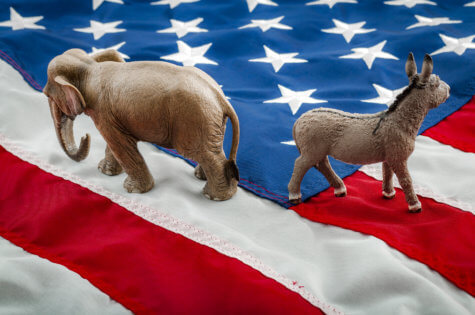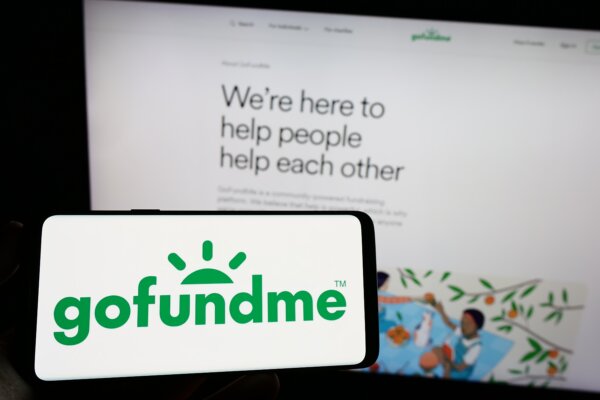
(© freshidea - stock.adobe.com)
PROVO, Utah — Browsing social media, it’s easy to get the impression that most people are either staunchly conservative or liberal, with no middle ground in between. After all, most posts that “go viral,” or are propped up by platforms’ algorithms, espouse quite polarizing controversial opinions. New research from Brigham Young University, however, reports that the vast majority of social media users (moderate Republicans & Democrats) make a conscious effort to “self-censor” their posts so as not to offend, create contention, lose friends online, or be perceived a certain way.
Subsequently, that means the vast majority of discourse online is being driven by a vocal minority of individuals from either of the far ends of the political spectrum. These accounts aren’t worried about voicing isolating or controversial opinions, don’t fear backlash, and in most cases their viewpoints go largely unchallenged. The end result is an increasingly polarized social media landscape.
“Those on the far left and far right are the ones speaking up on social media,” says study co-author Devin Knighton, BYU public relations professor, in a university release. “They report lower levels of self-censorship than those who are moderate.”
The research team surveyed over 1,000 people from a nationwide sample that mirrored the U.S. census to reach these conclusions. More specifically, subjects were asked about their social media habits, how worried they are about losing friends on social media over political differences, and how likely they were to self-censor their own social media comments.

The ensuing responses suggest that those who consider themselves as either a strong conservative and or liberal possess the lowest levels of self-censorship, and usually have no problem speaking up about the issues they care about. Meanwhile, those in the middle of the political playing field, moderate conservatives, independents, and moderate liberals, tend to self-censor much more often.
People don’t get involved in polarizing social media chatter for numerous reasons
Study authors explain that most people stay silent on social media for reasons beyond the sole fear of losing friends; moderate individuals worry that by sharing their opinions they may be perceived to be identifying a certain way. “For example, if someone wants to post that they think we should be more careful and considerate in how we talk about, treat, and work with immigrants, they might be afraid that they could be identified as a liberal,” Prof. Knighton notes.
Study participants were also asked to describe how they felt about specific social issues via a political typology tool developed by the Pew Research Center. This tool groups people together depending on the policy positions they favor, as opposed to using the political party or political identity they use to describe themselves. The self-censorship data across political typologies revealed no notable difference across the typology spectrum.
“It’s striking that people were more affected by social media conservations when we focused on their political identity than when we focused on their actual policy positions,” study co-author and BYU public relations professor Chris Wilson adds. “Maybe one way to turn down the volume a notch on political social media conversations is to spend less time defending our identities and more time talking about potential solutions to specific social issues. If we get out of the mode of trying to prove that we are right and get into the mode of talking about solutions to specific problems, there may be a chance that social media can be a less intimidating place to talk about politics.”
All in all, researchers believe this work holds vital implications for the average American, and should serve as a reminder that what we see on social media is hardly a representation of real life. Prof. Knighton recommends approaching anything shared on social media critically.
“If you feel afraid to post anything, recognize that it might be more related to identity politics than to your sense of connection and belonging,” Prof. Knighton concludes. “You can stand up for rational, moderate viewpoints and maintain your friendships. You just have to be willing to leave identity politics behind.”
The study is published in Social Media + Society.









